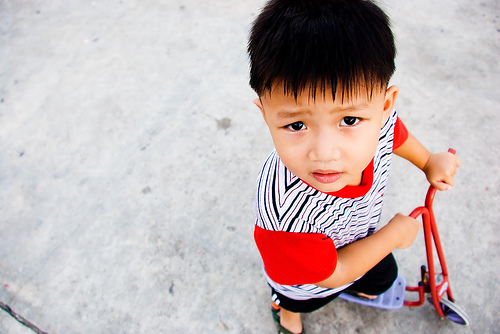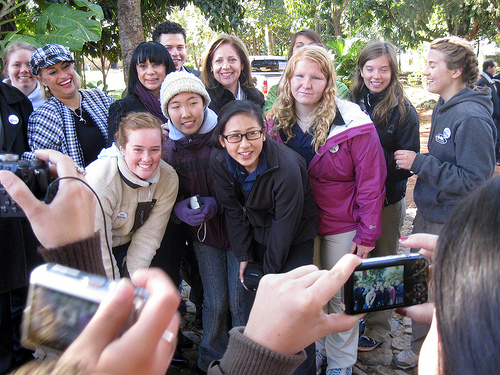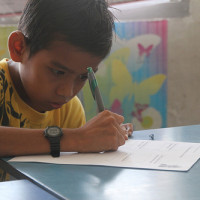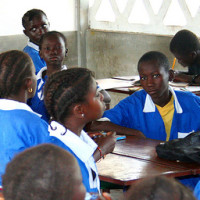Mauritania Struggles to Provide Children in Refugee Camps with Education
 Aid agencies working with Malian refugess at the Mbera refugee camp in Mauritania are struggling to provide children with access to schools and quality education. Part of the problem is that education receives little attention during an emergency like that presented by the recent conflict in Mali. Consequently, estimates show that only 17% of all school-aged children in the camp are attending official schools.
Aid agencies working with Malian refugess at the Mbera refugee camp in Mauritania are struggling to provide children with access to schools and quality education. Part of the problem is that education receives little attention during an emergency like that presented by the recent conflict in Mali. Consequently, estimates show that only 17% of all school-aged children in the camp are attending official schools.
Providing education to refugees in a situation such as this is challenging. Donors and emergency responders tend to focus on basic necessities like food, water, shelter and healthcare. In a crisis where even these needs are difficult to meet, education is seen as less of a priority.
Joelle Ayité, UNICEF’s head of education for Mauritania, confirmed that this has been a problem in Mbera, explaining “since the start we’ve not had enough funding. Since 2012 education has been a forgotten sector, despite the fact that half of the refugees are of student age.”
Despite insufficient funding, aid providers working in the camp have managed to establish several official schools. Although UNICEF and the NGO Intersos are working to build another 88 semi-permanent schools, currently there are very few facilities available. Those that do often consist of little more than a wooden frame covered by plastic sheeting.
Children attending these schools must contend with extreme conditions of overcrowding and insufficient staffing. In this situation, high absentee rates are common. Teachers also feel overwhelmed by having to work for little pay in minimalist classrooms containing as many as 300 children at a time.
“There’s no point in just setting up a shell of a school – it’s not worth it. Schools need good teachers, teachers need lamps so they can plan their lessons, they need pens – these things that are logical for us are not a priority for others” explained Momo, a retired teacher and education expert at Mbera camp.
Although agencies are working to provide refugee children with access to education, they are struggling to find both short and long-term solutions to this ongoing problem. They do not have enough money, supplies, classrooms, or teachers to provide for all of the Malian children who currently live in the camp.
As a result of the conflict in northern Mali, hundreds of thousands of refugees have fled the country’s borders to seek refuge in neighboring countries. Mauritania has received the largest number of refugees, with the Mbera camp housing around 75,000 refugees of which approximately 58% are children under the age of 18. With such large numbers of Malians seeking assistance, the Mbera camp has struggled not only with education but also with providing even the basic necessities of food, shelter, sanitation and medical care to those in need.
Creative Commons Love: Magharebia on Flickr.com
Written by Amanda Lubit









